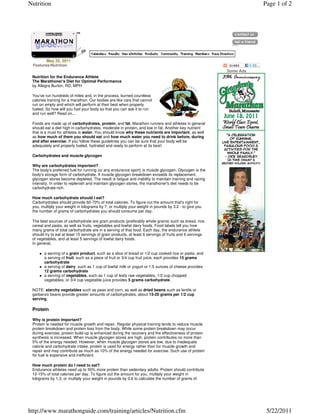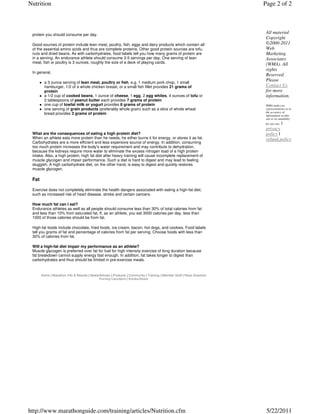The document discusses nutrition guidelines for endurance athletes like marathon runners. It recommends that their diet consist of 60-70% carbohydrates, 12-15% protein, and less than 30% fat. Carbohydrates are the most important macronutrient as they replenish glycogen stores and fuel exercise. Endurance athletes should aim to consume the number of grams of carbohydrates equal to their weight in kilograms multiplied by 7 or pounds multiplied by 3.2. Protein aids in muscle repair and growth, with athletes needing 12-15% of calories from protein or 1.3 grams of protein per kilogram or 0.6 grams per pound of weight. Fat intake should be under 30% of

